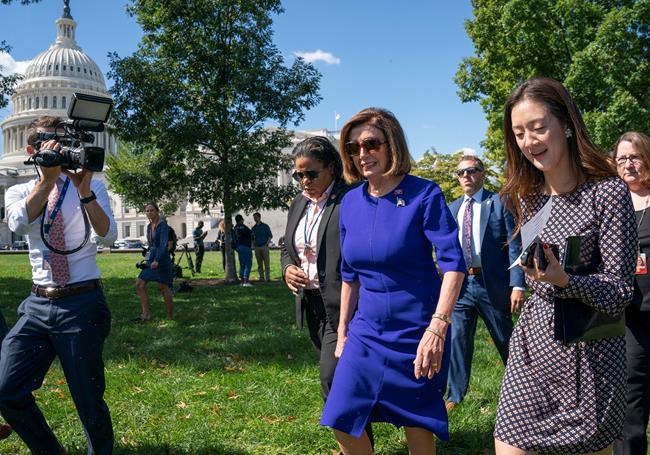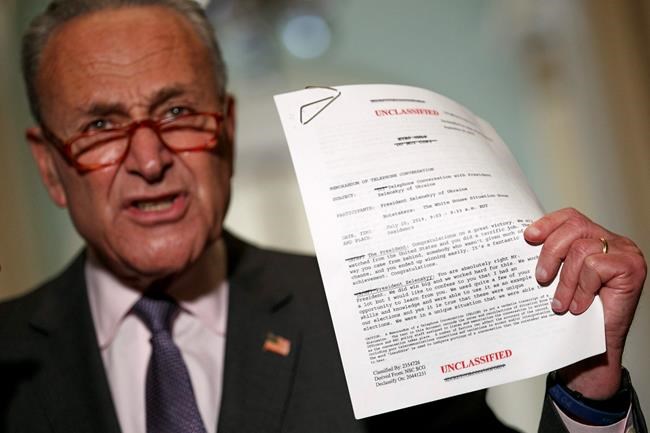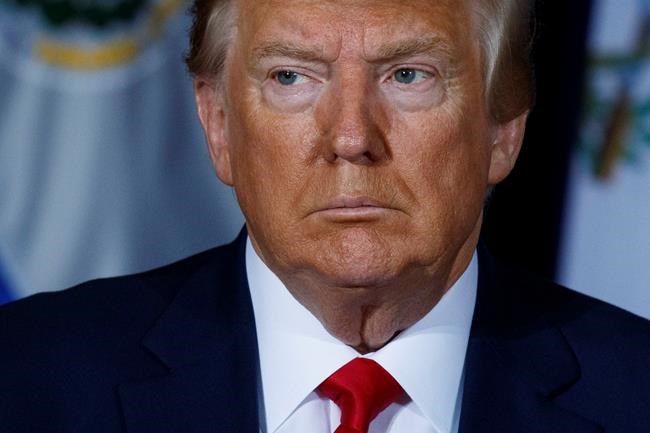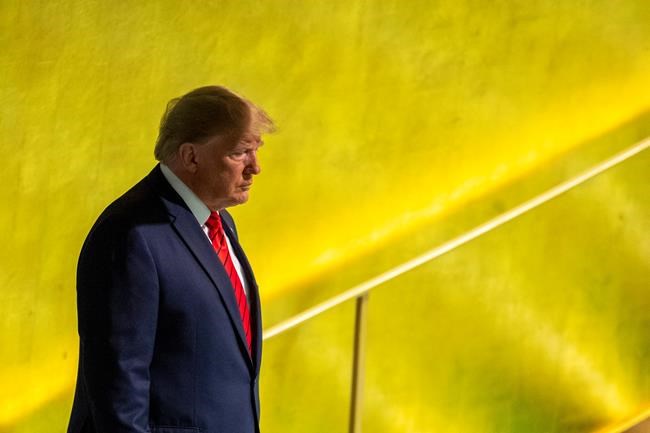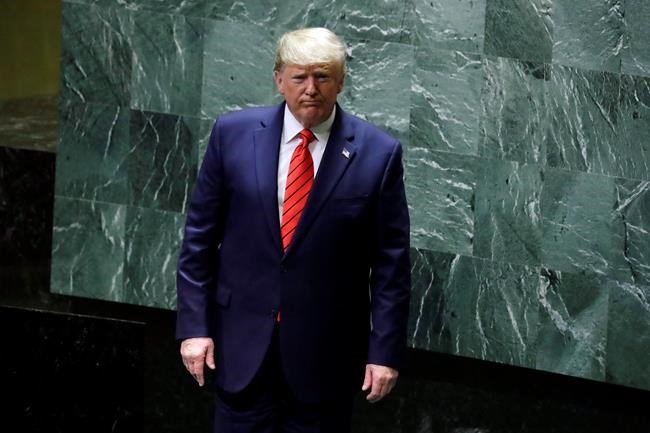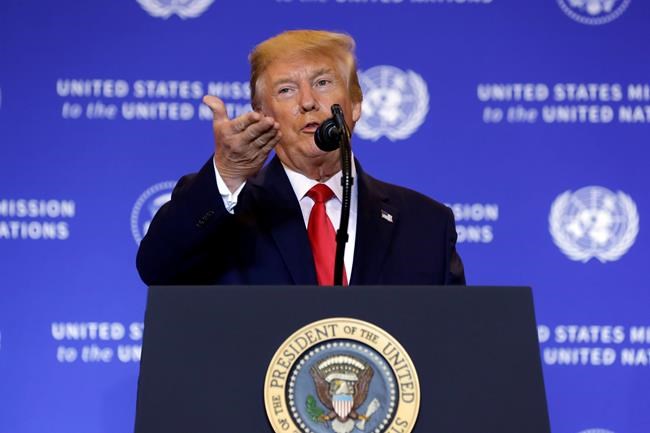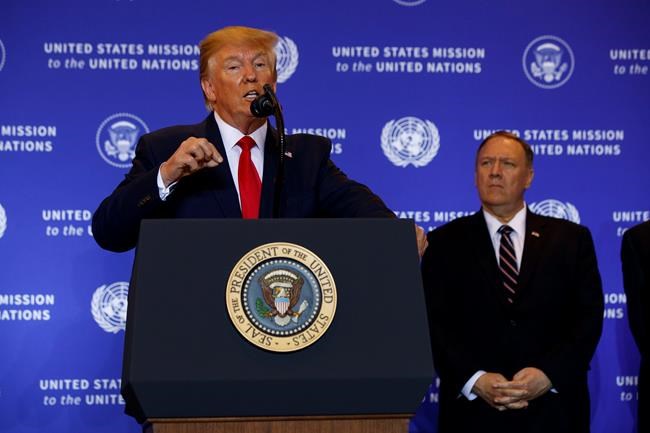Washington plunges into Trump impeachment investigation
Advertisement
Read this article for free:
or
Already have an account? Log in here »
To continue reading, please subscribe:
Monthly Digital Subscription
$0 for the first 4 weeks*
- Enjoy unlimited reading on winnipegfreepress.com
- Read the E-Edition, our digital replica newspaper
- Access News Break, our award-winning app
- Play interactive puzzles
*No charge for 4 weeks then price increases to the regular rate of $19.00 plus GST every four weeks. Offer available to new and qualified returning subscribers only. Cancel any time.
Monthly Digital Subscription
$4.75/week*
- Enjoy unlimited reading on winnipegfreepress.com
- Read the E-Edition, our digital replica newspaper
- Access News Break, our award-winning app
- Play interactive puzzles
*Billed as $19 plus GST every four weeks. Cancel any time.
To continue reading, please subscribe:
Add Free Press access to your Brandon Sun subscription for only an additional
$1 for the first 4 weeks*
*Your next subscription payment will increase by $1.00 and you will be charged $16.99 plus GST for four weeks. After four weeks, your payment will increase to $23.99 plus GST every four weeks.
Read unlimited articles for free today:
or
Already have an account? Log in here »
Hey there, time traveller!
This article was published 25/09/2019 (2268 days ago), so information in it may no longer be current.
WASHINGTON – President Donald Trump pressed the leader of Ukraine to “look into” Joe Biden, Trump’s potential 2020 reelection rival, as well as the president’s lingering grievances from the 2016 election, according to a rough transcript of a summer phone call that is now at the centre of Democrats’ impeachment probe.
Trump repeatedly prodded Volodymyr Zelenskiy, new president of the East European nation, to work with U.S. Attorney General William Barr and Rudy Giuliani, Trump’s personal lawyer. At one point in the July conversation, Trump said, “I would like for you to do us a favour.”
The president’s request for such help from a foreign leader set the parameters for the major U.S. debate to come — just the fourth impeachment investigation of an American president in the nation’s history. The initial response highlighted the deep divide between the two parties: Democrats said the call amounted to a “shakedown” of a foreign leader, while Trump – backed by the vast majority of Republicans – dismissed it as a “nothing call.”
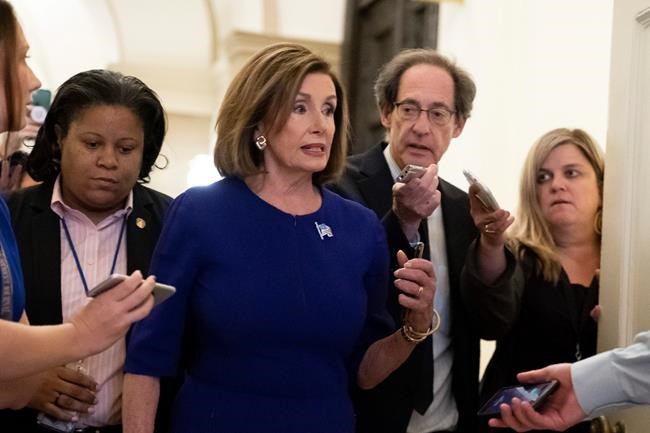
The call is one part of a whistleblower complaint about the president’s activities that have roiled Washington and led Democrats to move ahead with an impeachment inquiry of the Republican president on the cusp of the 2020 campaign.
After being stymied by the administration, members of the House and Senate intelligence committees took their first look at the complaint late Wednesday. Republicans kept largely quiet, but several Democrats, including Intelligence committee chairman Adam Schiff, called the classified account “disturbing.”
Some from both parties want it to be made public. Congress is also seeking an in-person interview with the whistleblower, who remains anonymous.
Trump spent Wednesday meeting with world leaders at the United Nations, a remarkable TV split screen even for the turbulence of the Trump era. Included on his schedule: a meeting with Zelenskiy.
In a light-hearted appearance before reporters, Zelenskiy said he didn’t want to get involved in American elections, but added, “Nobody pushed me.” Trump chimed in, “In other words, no pressure.”
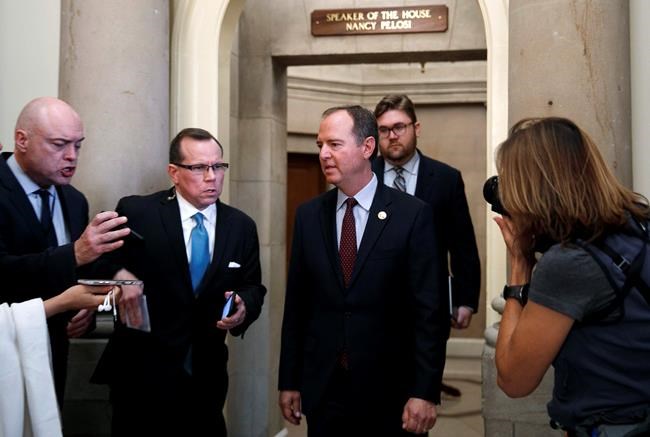
The next steps in the impeachment inquiry were quickly developing a day after House Speaker Nancy Pelosi launched the probe. A rush of lawmakers, notably moderate Democrats from districts where Trump remains popular, set aside political concerns and urged action.
One option Pelosi is considering, pressed by some lawmakers, is to focus the impeachment inquiry specifically on the Ukraine issues rather than the many others Congress has already been investigating.
“For me, that’s what’s important,” said Rep. Elissa Slotkin, D-Mich., among the new lawmakers in Congress with national security backgrounds. She said it’s “just an egregious idea that the president of the United States can contact a foreign leader and influence him for dirt on a political opponent. … That can’t be normalized.”
Pelosi announced the impeachment probe Tuesday after months of personal resistance to a process she has warned would be divisive for the country and risky for her party. But after viewing the transcript on Wednesday, Pelosi declared: “Congress must act.”
Trump, who thrives on combat, has all but dared Democrats to move toward impeachment, confident that the spectre of an investigation led by the opposition party will bolster rather than diminish his political support.
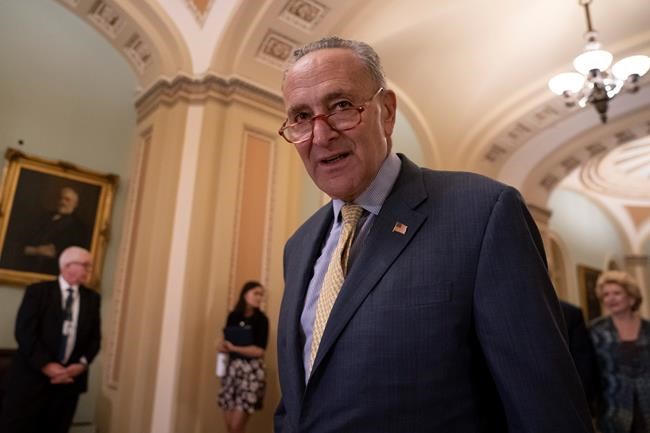
“It’s a joke. Impeachment, for that?” Trump said during a news conference in New York. He revived the same language he has used for months to deride the now-finished special counsel investigation into election interference, declaring impeachment “a hoax” and the “single greatest witch hunt in American history.”
Republicans largely stood by the president and dismissed the notion that the rough transcript revealed any wrongdoing by Trump.
“I think it was a perfectly appropriate phone call, it was a congratulatory phone call,” said Rep. Liz Cheney, the No. 3 House Republican. “The Democrats continually make these huge claims and allegations about President Trump, and then you find out there’s no there there.”
The Trump administration also continued to raise questions about the whistleblower’s motives. According to a Justice Department official, the intelligence community’s inspector general said in letter to the acting director of national intelligence that the whistleblower could have “arguable political bias.”
The memo released by the White House was not a verbatim transcript, but was instead based on the records of officials who listened to the call. The conversation took place on July 25, one day after special counsel Robert Mueller testified on Capitol Hill about his investigation into Russia’s 2016 election interference.
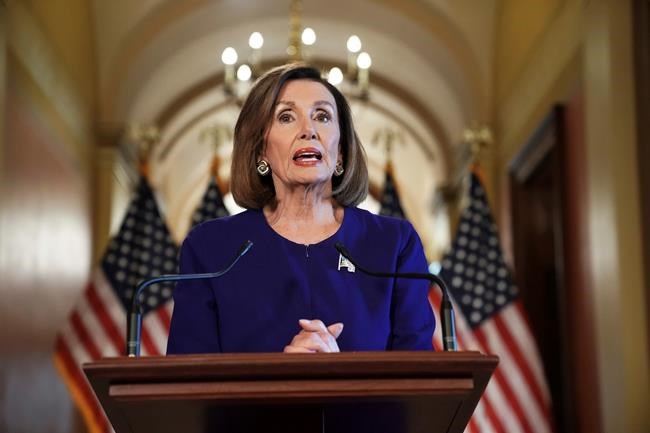
In the 30-minute phone call with Zelenskiy, Trump encourages the Ukrainian leader to talk with Giuliani and Barr about Biden and his son Hunter, who served on the board of a Ukrainian gas company. Immediately after saying they would be in touch, Trump references Ukraine’s economy, saying: “Your economy is going to get better and better I predict. You have a lot of assets. It’s a great country.”
At another point in the conversation, Trump asked Zelenskiy for a favour: his help looking into a cybersecurity firm that investigated the 2016 hack of the Democratic National Committee and determined it was carried out by Russia. Trump has falsely suggested Crowdstrike was owned by a Ukrainian.
In the days before the call, Trump ordered advisers to freeze $400 million in military aid for Ukraine — prompting speculation that he was holding out the money as leverage for information on the Bidens. Trump has denied that charge and the aid package does not come up in the conversation with Zelenskiy.
Trump has sought to implicate Biden and his son in the kind of corruption that has long plagued Ukraine. Hunter Biden served on the gas company’s board at the same time his father was leading the Obama administration’s diplomatic dealings with Kyiv. Though the timing raised concerns among anti-corruption advocates, there has been no evidence of wrongdoing by either the former vice-president or his son.
Biden said it was “tragedy” that Trump was willing to “put personal politics above his sacred oath.” He singled out Trump’s attempts to pull Barr and the Justice Department into efforts to investigate Biden, calling it “a direct attack on the core independence of that department, an independence essential to the rule of law.”
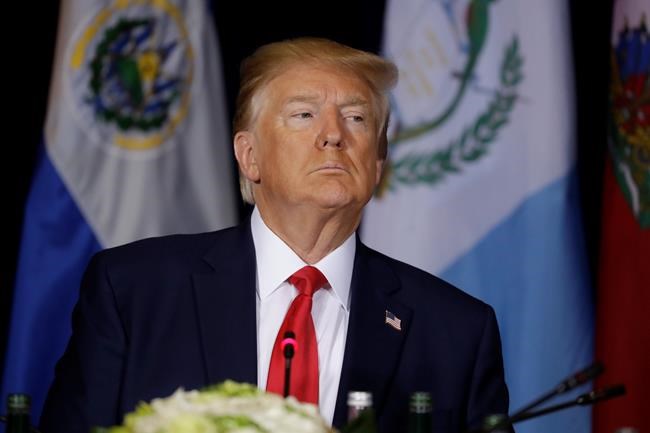
While the possibility of impeachment has hung over Trump for many months, the likelihood of a probe had faded after special counsel Robert Mueller’s Trump-Russia investigation ended without a clear directive for lawmakers.
Since then, the House committees have revisited aspects of the Mueller probe while also launching new inquiries into Trump’s businesses and various administration scandals that all seemed likely to drag on for months.
Details of Trump’s dealings with Ukraine prompted Democrats to quickly shift course. By the time Pelosi announced the probe, two-thirds of House Democrats had announced moving toward impeachment probes.
The burden will probably now shift to Democrats to make the case to a scandal-weary public. In a highly polarized Congress, an impeachment inquiry could simply showcase how clearly two sides can disagree when shown the same evidence rather than approach consensus.
___
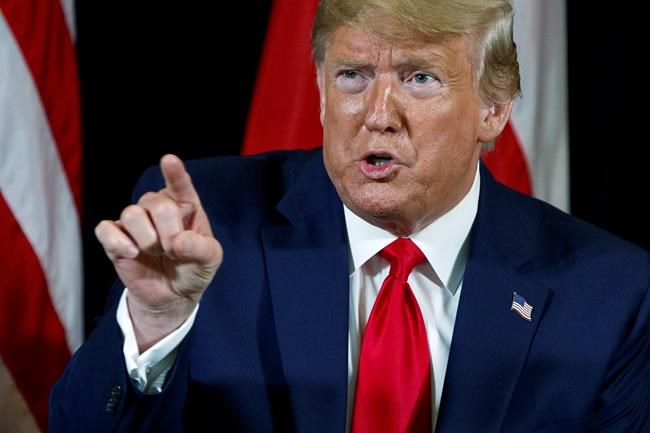
Associated Press writers Michael Balsamo, Laurie Kellman, Andrew Taylor, Eric Tucker and Zeke Miller in Washington and Jonathan Lemire and Deb Riechmann in New York contributed to this report.
